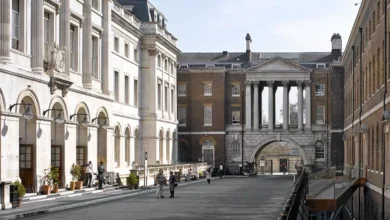International student levy could cost unis over £620m a year, HEPI warns
The HEPI found that the levy could cost University College London £42m, the University of Manchester £27m and King’s College London £22m

Register to get 1 free article
Reveal the article below by registering for our email newsletter.
Want unlimited access? View Plans
Already have an account? Sign in
The government’s proposal to introduce a 6% levy on international students’ tuition fees could see higher education institutions face new costs of just over £620m a year, the Higher Education Policy Institute (HEPI) has warned.
In total, the English higher education sector receives £10.3bn a year in international fees, and several institutions derive over 70% of their fee income from non-UK students, such as University College London (79%), Imperial (77%) and the LSE (75%).
The HEPI found that the levy could cost University College London £42m, the University of Manchester £27m and King’s College London £22m, while 19 institutions would pay at least £10m.
It comes as the UK higher education sector is “already facing severe financial headwinds”, with the Office for Students warning that 72% of providers could be in deficit by 2025/26, with a total deficit of £1.6bn.
The HEPI warned that alongside other changes aimed at international students, such as a cut to the Graduate Route visa from two years to 18 months and tougher Basic Compliance Assessments, a levy on international students’ fees would “damage the UK’s offer when the sector is under strain”.
It said it is “unclear” to what extent higher education institutions would try to absorb the extra costs posed by the proposed new levy, but options include spending less on educating students or passing the costs on to students through higher fees.
Mark Fothergill, an independent researcher who has compiled the data, said: “International students are the backbone of our higher education system, contributing over £10bn in fees to English universities – around £4.50 of every £10 of fee income. No wonder the 6% levy is seen as a tax on one of the country’s best-performing sectors.
“The market for international students is competitive and a levy would hamper universities’ ability to compete with institutions in other countries. There are good reasons why Australia opted not to implement a levy when it was proposed there a couple of years ago.”
Nick Hillman OBE, director of HEPI, added: “The proposed levy on international students comes up in just about every meeting I attend. University leaders are worried it will be yet another weight dragging them down in the struggle to remain globally competitive. The levy is designed to raise more money for the Government’s educational priorities but it is not clear if all the money will come back out of the Treasury, nor how it will be spent if it does.
“Threatening an expensive new tax on one of the country’s most successful sectors with only a rough idea of how the money will be used seems far from ideal. Currently, the levy is a shadow looming large over universities as they prepare for the next academic year.”




